Before we dive in, I would like to start by clarifying that, despite the title, this post is neither pushing for nor against veganism. It is designed to provide you with information I have gained through my own studies, research, training, work and life experience to help you make the best decision for you if you are considering going vegan.
A quick recap on what veganism is: Veganism is the complete omission of foods that are derived from animal origin from the diet. This includes meat, dairy, eggs, seafood and for some honey and yeast also.
Any changes to your dietary intake have the potential to cause harm especially if they are made in such a restrictive way as veganism therefore such changes should only ever be made from a well-informed place. Which means if you are contemplating going vegan, I strongly encourage you to first ask yourself the following 5 questions to ensure you are beginning from a place of knowledge and power and won’t be compromising your health and well-being because while it may be possible to meet your dietary needs through a vegan diet it will not happen without education and planning and the reality is it also may not be the best option for you.
1. Q1: What Are My Motives?
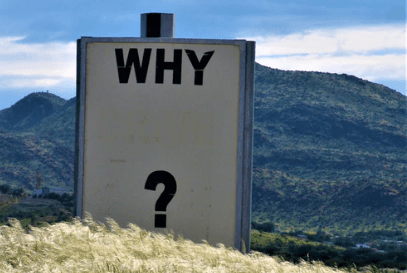
First and foremost, get clear on what it is you want to ‘achieve’ by becoming vegan.
There are many reasons people choose to go vegan most of them are well intentioned and come from a belief that it will have a positive impact on their health, animal rights and/or the environment.
Fact number 1. If you are going vegan with the intention of improving your health, there are easier, more sustainable and realistic ways to improve your health.
This isn’t to say that going vegan won’t improve your health. It may. But there are numerous other ways to alter your diet that are less restrictive and will give you potentially equal or even better health improvements.
If it is motivation to improve your health that is driving you to go vegan, why is it that you think veganism is the answer to your health challenges? To know this, you must first understand what the ‘problem’ areas of your diet are. Are you eating unhealthy in the first place? If you are convinced you are what are some ways you could improve your diet without cutting out entire food groups? If you are not sure on the answers to any of these questions I highly encourage you to seek dietetics support.
In general, if you follow the basic guidelines to healthy eating that are based off long term, reputable studies and epidemiological data you will more than likely experience health improvements. If you want some quick, proven and practical tips on how to improve your diet refer to my earlier post “What is Healthy Eating Anyway”.
With dietary studies we generally like to look at 5 generations to draw conclusions about the healthfulness of those diets and with veganism such data is lacking as veganism is a relatively new concept which makes assessing the healthfulness of a vegan diet difficult.
Fact number 2. There are no traditional peoples that we know of that lived off vegan diets.
Meat and animal products were prized in traditional peoples and there are some cultures that lived almost exclusively off animal products for example the Inuit’s and the Masai. The people from both these cultures have lived healthfully on diets heavily based on animal products.
There is an evolutionary theory that humans evolved to eat meat and that it was the extra protein intake that allowed us to evolve huge brains and thus progress to the level we have. I’m not sold on this theory because I’ve also read equally convincing papers that draw the conclusion that it was the increase in starches, grains and fruits which allowed us to grow the brains we did. I think the justification to eat high protein and low carbohydrate diets ‘just like our ancestors’ is likely nothing more than a marketing pitch to promote the paleo and other low carb diets.
You might have heard the stories where someone changed their diet to a vegan diet and achieved any number of miraculous health advancements including curing diabetes and cancer and I do not dispute these claims yet what is hard to ascertain is whether the health change can be directly related to cutting out animal products or the adoption of a healthier diet and lifestyle in general. It is not hard to imagine that if someone makes dietary improvements of any kind their overall health will improve however, this improvement in health is likely independent of whether the heathier diet includes animal products or not. Indeed, amongst studies which compare meat eaters to vegetarians if the subjects of both groups are following a healthy diet (predominantly unprocessed foods, high in good fats and lean protein) and healthy lifestyles (some exercise, non-smoking and moderate alcohol consumption) there is no appreciative difference in health between those that ate meat and those that did not. The studies which support a difference in health between subjects eating meat and those not eating meat are generally comparing subjects on a meat-eating diet that is high in processed foods which are low in nutritional value and living a less healthy lifestyle than the more health-conscious people not eating meat. This means these compounding factors are likely playing a larger role on negatively impacting health than the fact that these people ate meat alone.
If you are changing to a vegan diet but don’t have food knowledge and simply switch animal products for highly processed vegan foods, chances are your diet will become less healthy than it was when you were eating animal products. Remember a diet rich in wholefoods is one of the key principles of healthy diets. Meat, dairy and eggs are wholefoods, vegan butters and many of the processed vegan ‘meats’ and other such products are not. Worse yet is if you just cut out animal derived products without replacing them at all because your body will no longer be receiving the nutrition it requires which can have devastating consequences. It is very important to plan a vegan diet to ensure you are getting all the nutrition your body needs and this won’t happen through keeping your diet the same as it is now minus the meat, eggs and dairy. You must replace those nutritious foods with combinations of foods that will give you the nutritional equivalency (more on how to do this a little later).
Today we live in a world where we do not have to rely on animal products to meet our nutritional needs, we can live a life without eating animal products at all, thanks to our access to an incredibly vast array of foods and nutritional supplements. However, just because we can does not mean following an animal product free diet is the healthiest option because with health there is a huge difference between sufficient and optimal.
Think of your true motives and what you want to achieve by becoming vegan because as with anything in life you truly wish to succeed at it must come from a place of good intentions and veganism is no exception. Are your intentions well-meaning and is becoming vegan the best way in which you can realistically achieve the outcomes you desire?
Q2: How Much Meat Do I Currently Eat?
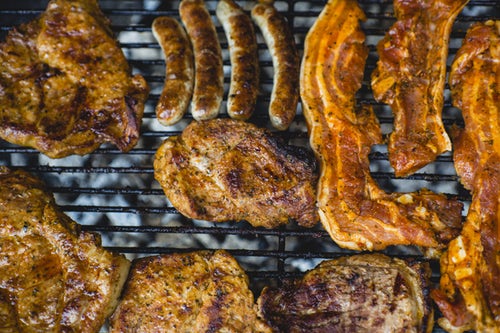
Fact number 3. Some of us are eating amounts of meat above what our body needs.
Therefore, if your main concern and motivation for going vegan is to decrease your environmental impact it is likely that the problem doesn’t lie in the fact that you’re eating meat but in the amount of meat you are eating.
Our bodies need protein for all sorts of functions. From the well-known muscle building to healthy immune function and facilitation of many chemical processes that keep us alive. The well-hidden secret amongst the trend in many current diets that seem to be pushing for a low carb intake and the abundance of protein powders on the market is that our bodies don’t require an exuberant amount of protein.
Just as the amount of calories people need to eat varies, the amount of protein our bodies need also varies depending on age, weight, exercise, individual metabolic needs and overall health.
The current Australian Dietary Guidelines (ADGs) endorse a recommended daily intake (RDI) of 64g/day of protein in males between the ages of 19-70yrs after which requirements increase. For women between the ages of 19-70yrs the RDI is 46g/day. During pregnancy and after the age of 70 protein requirements also increase for women. I will give you a quick example of what this looks like in terms of food because no food is 100% protein even meat, the highest source of protein is not pure protein.
There is about 16g of protein in a 65g cooked (100g raw) piece of steak. This is a piece of meat about the size of the palm of your hand. So, if a woman’s RDI for protein is 46g/d her protein requirements can be reached through eating a 185g piece of red meat [(46g protein/day ÷ 16g protein/65g meat) x (65g meat)]. From this example you can see that the reality is you may currently be eating your protein intake for a whole day in one meal. Note that I have used red meat for this example which is provides the most protein per gram of any wholefood.
Keep in mind that this RDI for protein of 46g per day is just that; per day, it is not what is needed in one meal. Theoretically this means that protein coming from all dietary sources is recommended to add up to 46g/day on average and studies show that our bodies make better use of protein in terms of repairing and building muscle if we spread our intake out over the day. I am going to assume that most of us do not have a 185g steak as our entire daily food intake which means that you are getting protein from a combination of other foods including plant foods whether you follow a vegan or omnivorous eating pattern.
An example of a daily protein intake provided through a mixed diet could look like this. Approximate protein amounts in each meal are given in brackets.
Breakfast: 2eggs on two slices of toast, slice of cheese (30g)
Snack: 1 slice of toast with 1 tbsp peanut butter (7.8g)
Lunch: 1 cup brown rice, 1 small tin tuna, slice of cheese, salad vegetables, 1tbsp hummus, ½ avocado (30g)
Snack: 1 small tub (170g) yoghurt and piece of fruit (15g)
Dinner: 100g steak, ¾ cup mashed potato, ½ cup cooked vegetables (20g)
Snack: 4 squares chocolate, 1 cup milk (11g)
For a total of 100g of protein over the day. Which meets the RDI for protein without a large meat intake.
What I hope to highlight in the above example is that meat is not the only food source contributing protein to your daily intake. Which brings me back to my initial point that it may be that the quantity and also the type of meat is more important than the fact that you do eat meat.
If you want to decrease your impact on the planet and are conscious of animal cruelty you can make a big difference by reducing the amount of meat you eat. A great place to start would be to try a couple of meat free days and/or reduce the size of your meat portion if you currently eat say a 200g steak twice a day. This will also improve your dietary variety which increases the likelihood that you are meeting your nutritional needs. Keep in mind that this suggestion may not be applicable to you, it is not applicable to everyone because not everyone is eating large quantities of meat. It is up to you make this assessment for yourself and if you are unsure see a dietitian for expert advice tailored to your needs, circumstances and goals.
Q3: How Will I Meet My Nutritional Requirements If I Cut Out Animal Products?

If you’re no longer going to be meeting your nutritional requirements through animal products, how will you?
Do you know which nutrients you are most at risk of developing a deficiency in when changing to a vegan diet? Do you know the consequences of a nutritional deficiency in any of these at-risk nutrients? Do you know where to get these nutrients from in adequate quantities if you do choose to follow a vegan diet?
If you answered no to any of these questions you are not ready for a vegan diet. Your health is and always will be your greatest asset and I can’t stress enough that you really must equip yourself with the knowledge and support to take care of your health not just to prevent deficiencies but to get the most out of your life.
Fact number 4. If your diet is currently reliant on animal products to provide you with the majority of your energy (calories), vitamins and minerals and you cut out these products without replacing them with adequate plant sources your health will suffer.
A comprehensive cover of all the nutrients that will be impacted by changing from an omnivorous diet to a vegan diet is beyond the scope of this post. However, here we will look of the top important nutrients to consider when changing to a vegan diet protein, iron and vitamin B12.
Protein
Fact number 5: It is possible to get enough protein from a well-planned vegan diet.
Protein, along with fats and carbohydrates, is one of the 3 macronutrients (macros) our body needs (for an explanation of the macros click here).
To give you a brief appreciation of the tip of the iceberg when it comes to the extensive list of roles protein is integral to in your body it is necessary for growth, repair and maintenance of all cells, enzymes, hormones, muscles, not just your biceps but your organs such as your intestines and heart muscle also, wound healing and it is also vital for proper function of your immune system. Unlike fats and carbohydrates which our bodies store, protein is not stored in any designated usable amount therefore we must have a regular daily intake. At the extreme if you do not regularly eat foods containing adequate protein to meet your needs your body will resort to breaking down your muscle tissue to obtain the protein it requires.
Foods of animal origin are higher in protein than those of plants for typical serving sizes. As we talked about above, 65g of cooked beef contains around 16g of protein in comparison it would take 200g of tofu or 1 cup of cooked lentils or as an extreme example 16 apples to get the equivalent 16g of protein. Meat is a concentrated source of protein, this means if you are considering transitioning to a vegan diet you must understand that in order to adequately replace your protein intake from meat with protein from plant sources it will involve planning and will often require eating a larger volume of food which does not suit everyone.
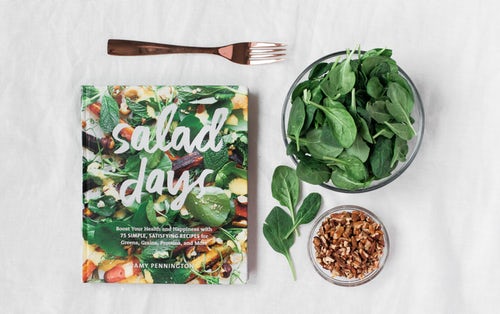
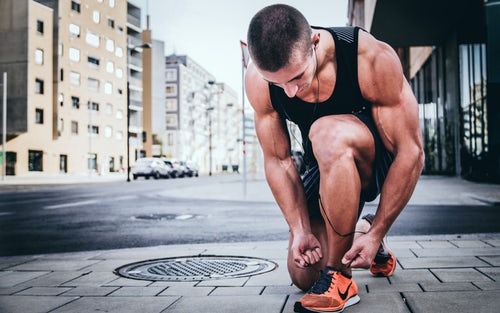
Iron
Iron is one of 16 minerals your body needs. Like protein iron plays more than one important role in your body. The most well-known of which is as the central component of the haemoglobin molecule, the functional component of red blood cells and red blood cells are responsible for carrying oxygen to and removing carbon dioxide from all tissues in your body which is to say the least a pretty significant job!
Iron deficiency (commonly called anaemia) has many nasty consequences including fatigue, dizziness, light-headedness, irritability, tiredness, lethargy, brittle nails, paleness and can also cause a fast heart rate or palpitations.
Foods contain two different forms of iron haem and non-haem. Both haem and non-haem iron are found in meat whereas eggs, dairy and plant foods contain only non-haem iron. Haem iron is referred to as having a high biological availability because it is readily absorbed in the gut and used by your body whereas non-haem iron is often referred to as being of low biological availability because it is less well absorbed. In general people following vegetarian or vegan diets need to have a higher intake of iron due to the fact that their iron sources are all non-haem and therefore less well absorbed. Vegan sources of iron include tofu, legumes, nuts, seeds and dried fruits especially dried apricots, dark leafy green vegetables, wholegrain cereals as well as iron fortified foods (such as breakfast cereals and breads). For most people it is possible to get enough iron through a well-planned vegan diet. The key words here being ‘well-planned’. A poorly planned vegan diet will be lacking in iron and many other vital nutrients and understanding how to get an adequate dietary intake of iron is very important if you are decreasing your intake of meat because red meat is by far the best source of iron. Women of childbearing age are most at risk of iron deficiency due to the loss of iron in blood during menstruation.
A couple of extra points to be aware of to help maximise your iron intake that you can apply to your eating patterns today, whether you are vegan or not, are knowing that iron absorption is affected by the foods you eat in the same meal. Tannins in tea and calcium (whether from dairy products or supplements) inhibit iron absorption so have your tea, smoothie or calcium supplement a couple of hours apart from iron containing meals. On the other hand, vitamin C increases iron absorption so include some vitamin C rich food with iron containing meals to boost your iron absorption.
Vitamin B12
Despite the fact that we only need a very small amount of vitamin B12 in our diets the consequences of deficiency are severe. Vitamin B12 deficiency leads to enlargement of red blood cells due to them being unable to divide (called megaloblastic anaemia), tiredness, lethargy and repressed immune function, impaired healing and resistance against infection. These warning signs can be corrected through B12 injection however long term B12 deficiency can lead to nerve damage which can cause depression, mental confusion and even paralysis and brain damage which can be irreversible even after B12 injections.
Vitamin B12 is found in all, and only foods of animal origin. Thus, you can see the problem a vegan diet presents to this vitamin right here because by definition it is exactly these foods that a vegan diet excludes.
There are a few plant-based products which are marketed as containing vitamin B12 such as mushrooms and seaweed. However, these foods do not contain the active form of the vitamin your body can use and there is currently no plant food that has been shown to improve vitamin B12 status in humans. You might also have heard that there are bacteria in the human gut which produce vitamin B12 but the part of the digestive tract where vitamin B12 is produced is lower down than the part where it is absorbed which means the B12 produced by your gut bacteria is largely pooped out and unavailable to meet your B12 requirements.
The tricky thing about vitamin B12 is that it is well stored and the time it takes for people to develop deficiency varies markedly person to person. In most people it can take years of prolonged low or no intake for a deficiency to develop and when they do initial symptoms such as tiredness or lack of energy are often not immediately attributed to low B12.
Fact number 6: If you are going to go vegan successfully B12 supplementation in the form of a multivitamin or foods fortified with vitamin B12 is a necessity.
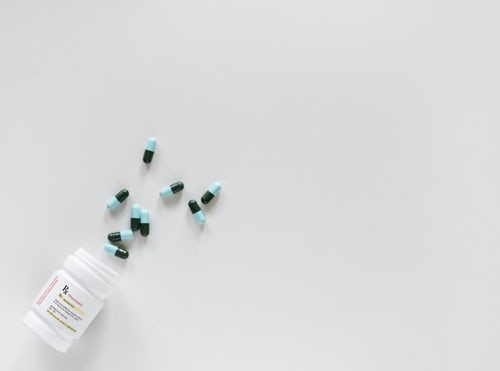
This is by no means an exhaustive list of the nutrients you are at risk of deficiency in when transitioning to a vegan diet. Several other nutrients that people generally obtain the majority of their needs through consumption of animal products are calcium, omega 3 fatty acids, iodine and vitamin D if your sun exposure is low. It is therefore very important to see a dietitian to find alternative ways you can meet your requirements for these nutrients and not compromise your health.
4. Where Do the Animal Products I Eat Come From?

To cover the ethical issues associated with eating meat and other animal products is beyond the scope of this post however I do want to touch on it because with this topic it is as important as any of the nutritional points.
I have always had huge personal issues with the livestock industry. I remember as a child learning about battery hen farming and being shocked that humans could do this to chickens. One of my deepest motivators to become a grow up as quickly as possible so I could free all these poor chickens to run free. I believe we all feel these feelings to some extent whether we voice them or act on them or not we all know it isn’t fair to treat animals the way the modern food industry does. The growing world population has increased the need for meat, eggs and dairy to an extent where it has led to animals being bred and raised in mass and basically treated as if they are dead while they are still alive. The flip side of this this mistreatment is gaining widespread awareness and there is a corresponding growing demand for ethically raised animals.
While I do not stick my head in the sand when it comes to animal rights, I am realistic because in today’s world there are many choices you have to create ways to lessen your impact and role in animal cruelty while also not compromising your health because if protecting animals can only come at a severe cost to your health and life are you really benefiting this world?
Fact number 7. If you are not practicing a nutritionally adequate vegan diet all the well-meaning, most noble intentions in the world will not sustain your health.
If your desire to go vegan is highly motivated by ethical reasons I suggest first looking at where the meat you are buying is coming from. How are these animals raised? They will never have the quality or quantity of life of a wild animal but also keep in mind that these animals (cows, chickens, pigs) have been selectively bred to meet the wants and desires of humans and would not otherwise exist in nature in their current form. As alluring, beautiful and fun as the concept is it just isn’t feasible or environmentally friendly to let them all free tomorrow.
Due to people becoming increasingly aware of the horrific treatment of animals in the food industry there are more options available where you can purchase ethically farmed and organic meats, eggs and dairy products. Alternatively consider whether going vegetarian or pescatarian might be a healthier possibility or a place to start. You can source free range eggs, get your own chickens or buy eggs from a friend who has chickens and you can buy milk and other dairy products that come from ethically and organically kept cows, sheep or goats.
These ethical, free range and organic options cost more than if you are buying the cheapest mass-produced products, but vegan alternatives can also often be quite expensive and in general if you are following a vegan diet you will need to eat more food in terms of volume to get the same nutrition as the typical omnivorous diet. I demonstrated this earlier using the example of red meat verses tofu where it took 65g and 200g respectively to get the same amount of protein. If you are motivated by ethics and the environment it really is worth the extra money because by investing your money into supporting ethical farming practices you are letting these industries know that there is demand for it and this will, over time lead to consumer driven adoption of ethical practices across the board.
5. Is There a History of Eating Disorders in My Family?

And finally, I feel it is a responsibility of mine to finish with this point. If the answer is yes, I strongly and passionately advise you against changing to a vegan diet without the guidance of a dietitian.
Before you write this point off as just one of those things that isn’t going to happen to you remember that eating disorders are relatively common. Also, it isn’t protection to think ‘I love food too much I could never have anorexia’ because the number of people who have told me they had said these exact words and then gone on to unwittingly develop anorexia is morbidly ironic.
Fact number 8: Calorie deficit can trigger an eating disorder.
The current understanding of anorexia nervosa is that there is a particular gene which some people have, and some people do not, and those that have this gene are predisposed to developing anorexia, that is not to say they are destined to develop an eating disorder but that if they are also exposed to an environmental trigger they are at higher risk than a person without the gene also exposed to the same trigger. One such trigger is calorie deficit or not consuming enough calories to meet the needs of your body. Whether this is through purposefully restricting food intake to lose weight or by accident through illness or an ill planned vegan diet anorexia will not discriminate because an eating disorder, like cancer or any other illness, is not a choice.
This isn’t to say you will develop an eating disorder if you follow a vegan diet or if you don’t eat enough calories to meet your needs as a one off it is to raise awareness and to reiterate the importance of healthy food practices irrespective of the eating pattern you follow because the consequences of eating disorders are too devastating to not include in this in this post.
Parting Notes
The foods we choose to eat are not linked to our morality and no one should be made to feel shame for what they choose to eat and not eat.
Personally, it shocks me when I hear or see people who shame others for what they eat and unfortunately, this shaming seems to appear in parts of the vegan ‘community’ and I understand the place it comes from- generally with the best intentions of bringing awareness to stopping animal cruelty. However, I do not believe even the noblest of intentions justify the deliberate shaming of another human being.
Fact number 9: We are all doing our best.
You never know the reasons why someone eats animal products. It is hypocritical when someone who chooses a vegan diet for ethical reasons finds it in their heart to shame those who eat animal products. That is not what veganism is about, that is not what any human should stand for, this is not a good way to promote veganism and if people are truly claiming to be vegan for animal rights and from a place of love and kindness for all beings then they must step up and themselves be an impeccable example of compassion.
Fact number 10: Being a role model is not the best way to influence others, it is the only way. Albert Einstein.
There is nothing which validates the deliberate shaming of another human being. Shame will never be an adequate motivator. Education will be. Understanding will be. Compassion will be.
Shame divides food into morally good and bad which has a far longer lasting and traumatic impact on human health than eating meat or other animal products ever will.
You and every human being on this planet have the right to obtain the information you need to make an educated decision as to what foods you want to consume or not consume to allow you to live your fullest, healthiest life and to do this I encourage you to seek the support of a food and nutrition expert; a dietitian. If your idea of going vegan has not gone beyond the decision to cut out animal products, please ask yourself the 5 questions discussed in this post because by finding the answers you can set yourself up for success in whichever choice you ultimately make.
The core message I want you to take away from this post is that you can’t remove one thing from your diet (be this meat, eggs, dairy or other) and not replace it with something else or a combination of other things to provide equivalent nutritional value. If you do your health will suffer.
In a perfect world scenario for the sake of animal welfare, we would all be vegan. However, we don’t exist in a perfect world scenario and the reality is there are numerous reasons why veganism is not the best choice for everyone. This post provided you with insight (not exhaustive by any means) into ways you can improve your diet that might be more realistic, achievable and in line with your goals than going vegan because any changes you make to your eating patterns should be towards being sustainable both for you and the planet.
Please leave your comments, questions, suggestions or share your experience with veganism below or get in contact with me if you have specific concerns.
With my whole heart I hope you found this information useful and inspiring.

Become Great. Live Great.
Bonnie.




2 thoughts on “Why You Shouldn’t Go Vegan”
Do you mind if I quote a couple of your articles as long as I provide credit and sources back to your weblog? My blog is in the very same niche as yours and my visitors would genuinely benefit from some of the information you present here. Please let me know if this ok with you. Many thanks!
You are most welcome to do so. Thank you for asking and I truly hope your readers find my information useful.